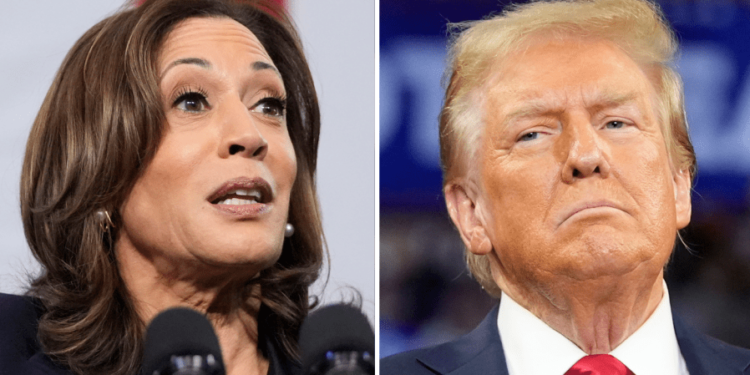
Economists expect higher inflation, national deficits and interest rates under former President Trump’s proposed agenda than under policies proposed by Vice President Harris, a new survey by The Wall Street Journal finds.
In the new survey conducted between Oct. 4-8, 68 percent of the respondents said they think inflation would rise faster under a second Trump term than if Harris were to become president – up 12 percent from when the outlet asked in July.
By contrast, the Journal said 12 percent of those surveyed thought inflation would be higher if Harris assumed the Oval Office and the rest “saw no material difference between the candidates.”
Sixty-five percent of economists also said they saw Trump’s policies adding more to the nation’s deficits compared to Harris’ policy agenda. The figure marks a 14 percent jump from the Journal’s July survey.
The survey’s results come not long after the Committee for a Responsible Federal Budget estimated the plans proposed by both candidates could increase the national debt by trillions of dollars through 2035. However, the report found that Trump’s tax and spending plans could add twice as much to the national debt as those brought by Harris.
The budget watchdog found Harris’s plans could add $3.5 trillion to the national debt over the next decade, compared to an estimated $7.5 trillion boost to the national debt from Trump’s plans.
In the latest survey by the Journal, economists were also asked about the potential impact of some of Trump’s proposed tariffs on domestic manufacturing employment. Fifty-nine percent of economists said employment would be lower, compared to 16 percent who said it would rise in the coming years. The rest of those who answered said employment would remain unchanged.
A majority of economists in the poll also said they anticipated higher interest rates under a second Trump term, with 61 percent of those surveyed saying as much.
Forty-five percent of economists expect economic output to expand faster under Harris overall, compared to 37 percent who said the same for Trump, and 18 percent that “saw no material difference,” the Journal said.
Moody’s Analytics also projected Trump’s economic agenda to add to inflation and slow the pace of growth in a July analysis.







